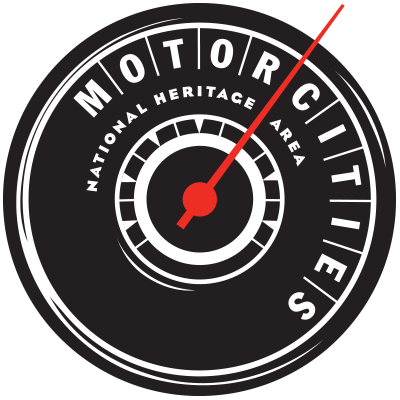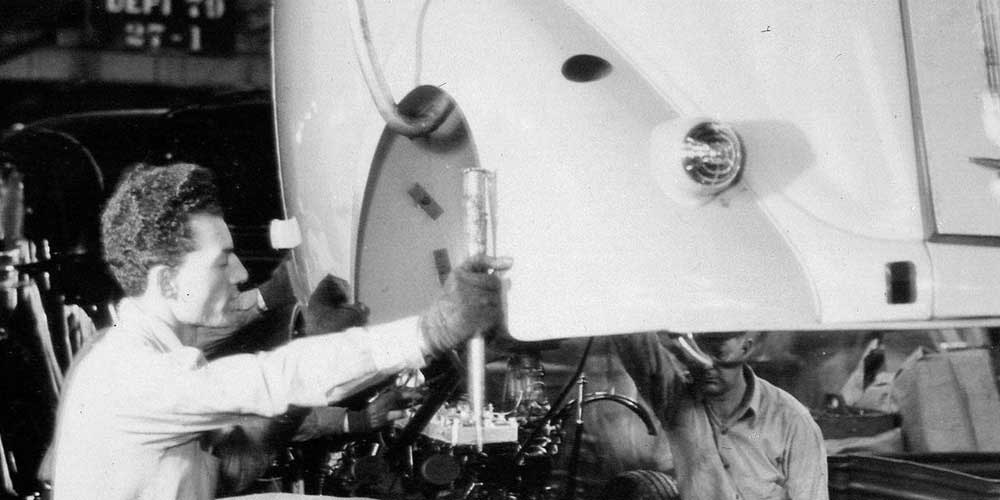By Robert Tate, Automotive Historian and Researcher
Images from the Robert Tate Collection
Published 11.27.2019
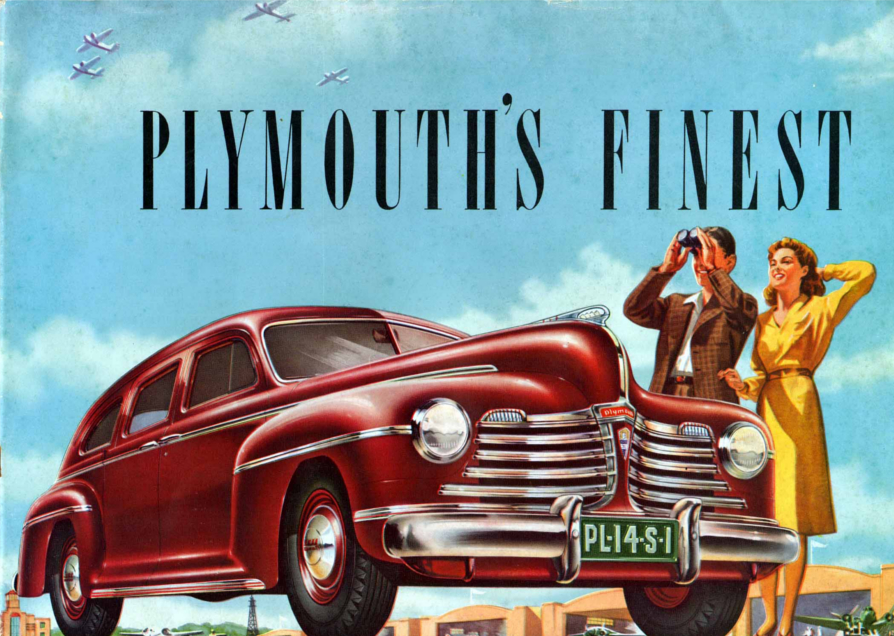 Promotional piece for the 1942 Plymouth Prestige
Promotional piece for the 1942 Plymouth Prestige
The 1942 Plymouth models began their production run several months before Pearl Harbor triggered the United States’ entry into World War II. The models were introduced to the market in the late summer and early fall of 1941. They sold very well, and the American public enjoyed their great styling.
When the war effort began, the American automakers began to restrict manufacturing production. The industry was required by law to halt passenger car manufacturing on February 9, 1942, but some automakers had phased out days earlier. Plymouth’s factory had about six months of 1942 model production by the time that transition took place.
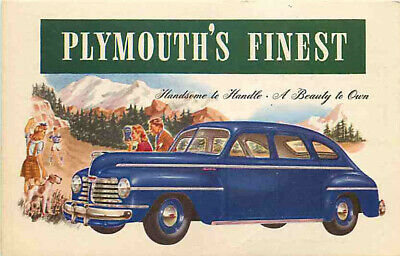 Advertising postcard for the 1942 Plymouth four door sedan
Advertising postcard for the 1942 Plymouth four door sedan
On September 1, 1941, Plymouth introduced two series, the DeLuxe and Special DeLuxe models (also called the P-14S and P-14C). The 1942 Plymouth models offered a broader, front grille with chrome bars that were longer and heavier. The DeLuxe model was priced at $885, and a total of 2,458 units were produced. The Club Coupe was a new body type for Plymouth and replaced the four-passenger coupe introduced the previous year.
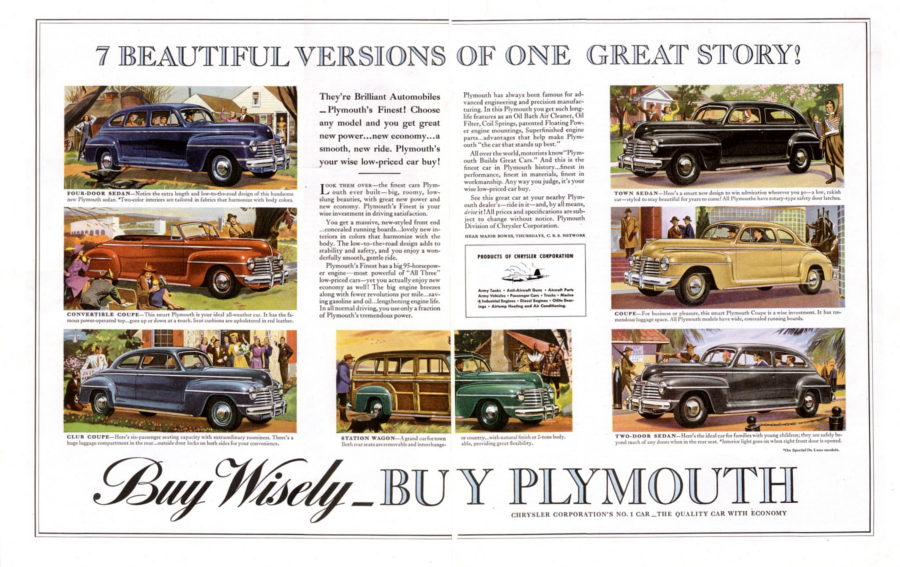 1942 Plymouth advertising
1942 Plymouth advertising
One of the most popular models in the Plymouth line-up for 1942 was the Special DeLuxe convertible. This model included a power-operated top along with a full-width rear seat, with much higher than usual legroom that made the convertible a five or six passenger car. Other features included a cigar lighter, which was very popular. The models also offered dual windshield wipers and dual taillights.
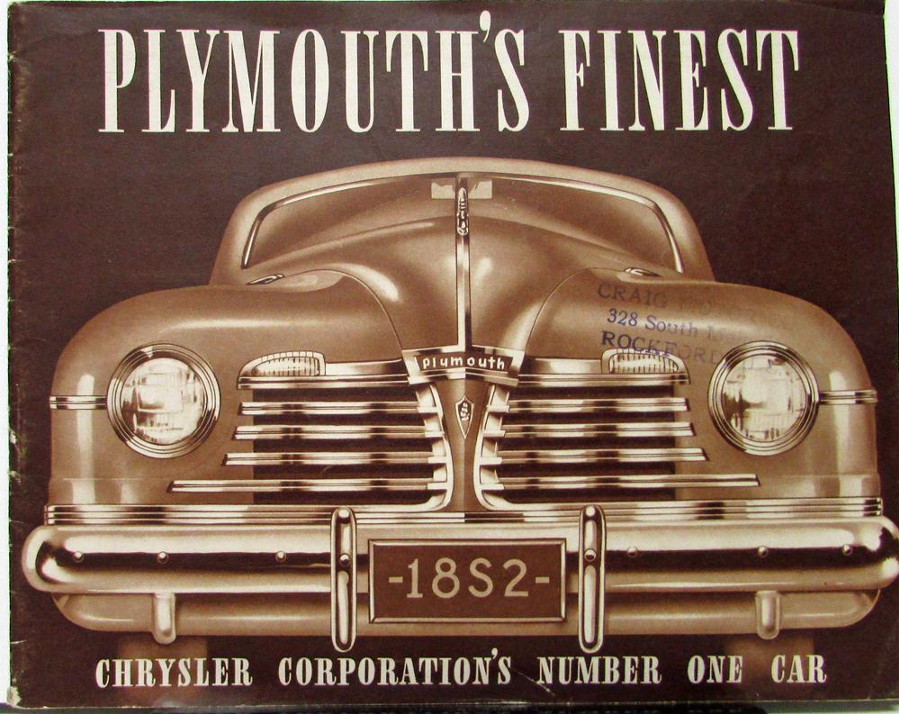 1942 Plymouth brochure
1942 Plymouth brochure
Chrysler advertising called the 1942 Plymouth “Chrysler Corporation’s Number One Car.” The running boards were flush with the floor and its side door design. The models offered a Broadcloth fabric interior. On the Special DeLuxe four-door models, the consumer could order a Broadcloth or a pile fabric design as well.
Some automotive historians have said that the 1942 Plymouth models were manufactured with less chrome because of the war. Some 1942 Plymouths front fender trim was painted over in what would become known as the “Black Out” models. Some Plymouths were even delivered to the military with wooden bumpers.
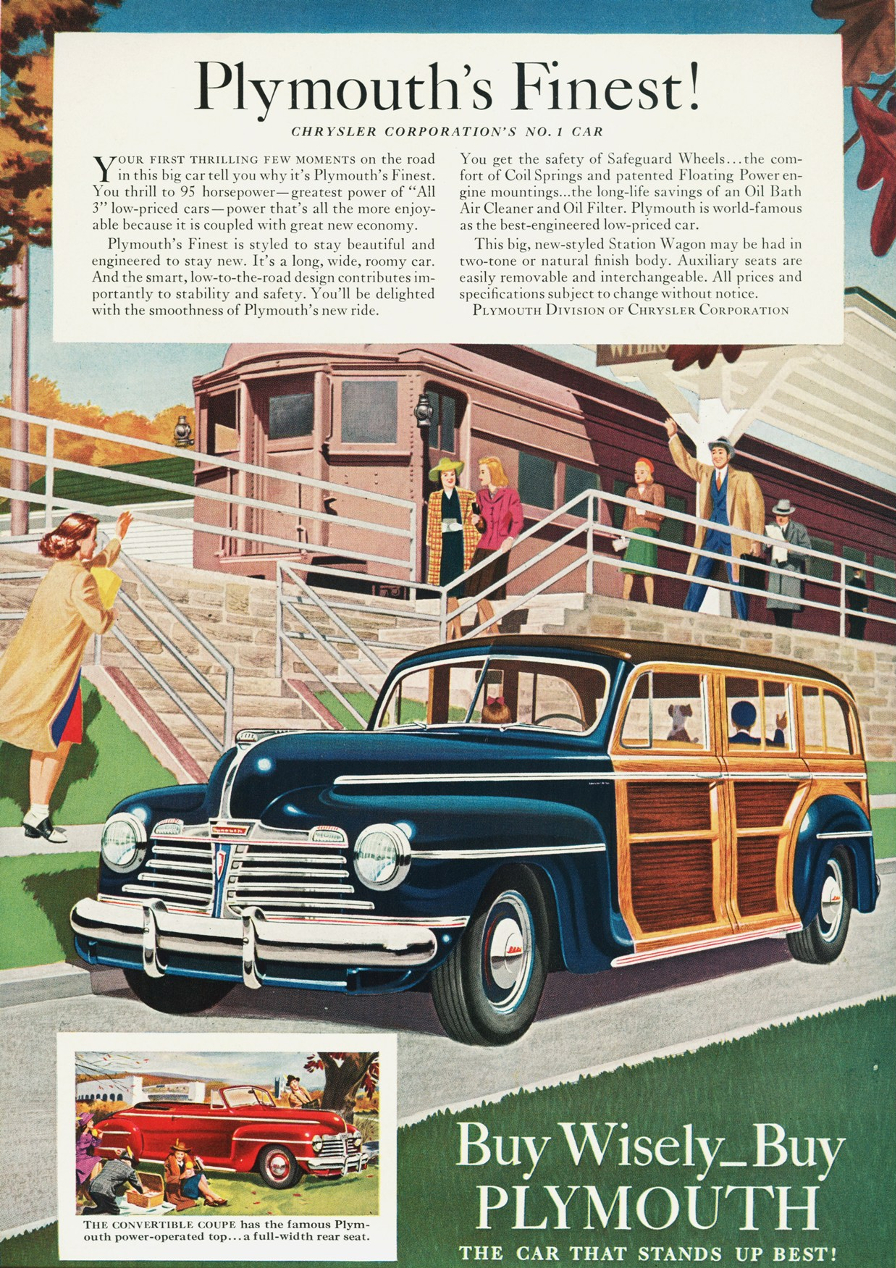 1942 Plymouth advertising
1942 Plymouth advertising
Plymouth’s 1942 station wagon models were the most expensive in the lineup. The Special DeLuxe station wagon cost $1,145 and was Plymouth’s lowest production model. It could seat seven or eight passengers, and the wood-crafted body offered a great looking design. The wood craft bodies were built by the U.S. Body & Forging Company. During the manufacturing process, the four doors were wider and were hinged at the front. The rear doors curved upward to the fender height like those of the Town sedan. The customer had a choice of mahogany or light maple paneling.
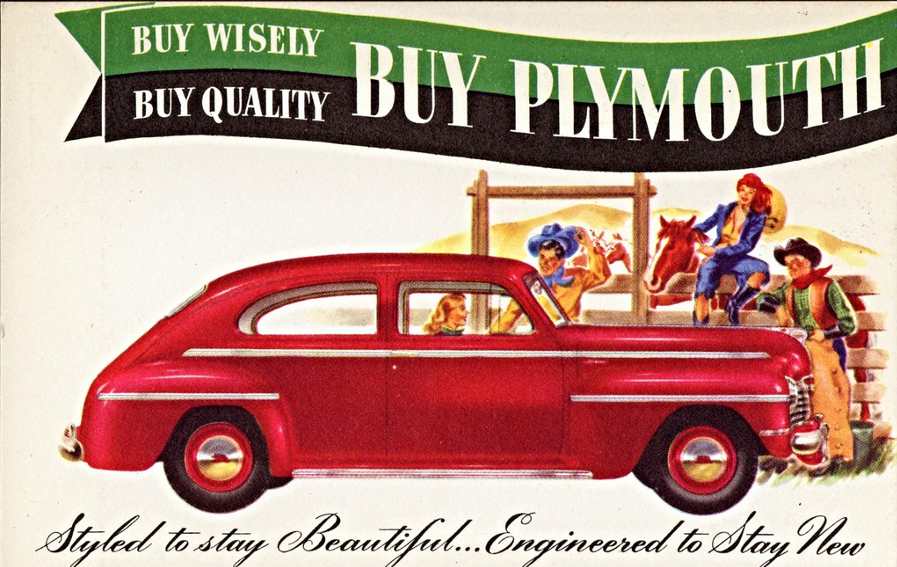 1942 Plymouth brochure
1942 Plymouth brochure
From the 1930s through 1970s, Plymouth was a consistent sales leader in the industry. For the 1942 model year, Plymouth’s production began late in July 1941 and ended on January 31, 1942. Some automotive historians said that many of the new Plymouth models not already sold were impounded by the government to be used for military service.
In conclusion, the 1942 Plymouth models will always be a part of our automotive history.
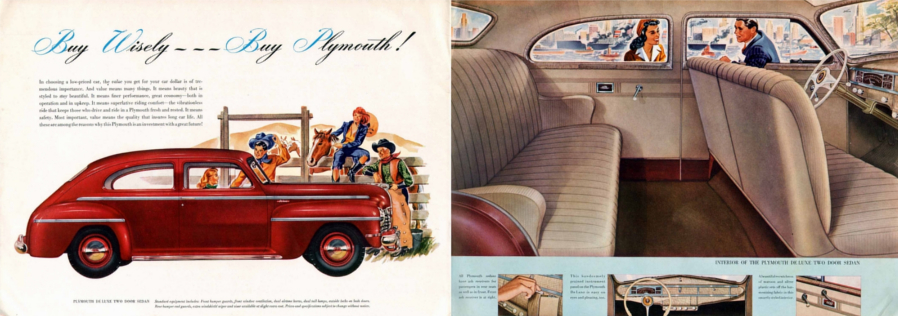 1942 Plymouth Prestige
1942 Plymouth Prestige
Bibliography
Butler, Don. “The Plymouth and DeSoto Story.” Crestline Publishing, 1978.
“Plymouth’s Larger Engine Increases HP to 95; Restyling Includes Hidden Running Boards.” Motor, October 1941.

